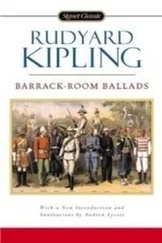Джозеф Киплинг - From Sea to Sea
Здесь есть возможность читать онлайн «Джозеф Киплинг - From Sea to Sea» весь текст электронной книги совершенно бесплатно (целиком полную версию без сокращений). В некоторых случаях можно слушать аудио, скачать через торрент в формате fb2 и присутствует краткое содержание. Год выпуска: 2014, Издательство: epubBooks Classics, Жанр: Биографии и Мемуары, Публицистика, на английском языке. Описание произведения, (предисловие) а так же отзывы посетителей доступны на портале библиотеки ЛибКат.
- Название:From Sea to Sea
- Автор:
- Издательство:epubBooks Classics
- Жанр:
- Год:2014
- ISBN:нет данных
- Рейтинг книги:3 / 5. Голосов: 1
-
Избранное:Добавить в избранное
- Отзывы:
-
Ваша оценка:
- 60
- 1
- 2
- 3
- 4
- 5
From Sea to Sea: краткое содержание, описание и аннотация
Предлагаем к чтению аннотацию, описание, краткое содержание или предисловие (зависит от того, что написал сам автор книги «From Sea to Sea»). Если вы не нашли необходимую информацию о книге — напишите в комментариях, мы постараемся отыскать её.
From Sea to Sea — читать онлайн бесплатно полную книгу (весь текст) целиком
Ниже представлен текст книги, разбитый по страницам. Система сохранения места последней прочитанной страницы, позволяет с удобством читать онлайн бесплатно книгу «From Sea to Sea», без необходимости каждый раз заново искать на чём Вы остановились. Поставьте закладку, и сможете в любой момент перейти на страницу, на которой закончили чтение.
Интервал:
Закладка:
In this manner is an engine treated for navicular, laminitis, back–sinew, or whatever it is that engines most suffer from. No. 607, we will say, goes wrong at Dinapore, Assensole, Buxar, or wherever it may be, after three years' work. The place she came from is stencilled on the boiler, and the foreman examines her. Then he fills in a hospital sheet, which bears one hundred and eighty printed heads under which an engine can come into the shops. No. 607 needs repair in only one hundred and eighteen particulars, ranging from mud–hole–flanges and blower–cocks to lead–plugs, and platform brackets which have shaken loose. This certificate the foreman signs, and it is framed near the engine for the benefit of the three Europeans and the eight or nine natives who have to mend No. 607. To the ignorant the superhuman wisdom of the examiner seems only equalled by the audacity of the two men and the boy who are to undertake what is frivolously called the "job." No. 607 is in a sorely mangled condition, but 403 is much worse. She is reduced to a shell—is a very elle–woman of an engine, bearing only her funnel, the iron frame and the saddle that supports the boiler.
Four–and–twenty engines in every stage of decomposition stand in one huge shop. A travelling crane runs overhead, and the men have hauled up one end of a bright vermilion loco. The effect is the silence of a scornful stare—just such a look as a colonel's portly wife gives through her pince–nez at the audacious subaltern. Engines are the "livest" things that man ever made. They glare through their spectacle–plates, they tilt their noses contemptuously, and when their insides are gone they adorn themselves with red lead, and leer like decayed beauties; and in the Jamalpur works there is no escape from them. The shops can hold fifty without pressure, and on occasion as many again. Everywhere there are engines, and everywhere brass domes lie about on the ground like huge helmets in a pantomime. The silence is the weirdest touch of all. Some sprightly soul—an apprentice be sure—has daubed in red lead on the end of an iron tool–box a caricature of some friend who is evidently a riveter. The picture has all the interest of an Egyptian cartouche, for it shows that men have been here, and that the engines do not have it all their own way.
And so, out in the open, away from the three great sheds, between and under more engines, till we strike a wilderness of lines all converging to one turn–table. Here be elephant–stalls ranged round a half–circle, and in each stall stands one engine, and each engine stares at the turn–table. A stolid and disconcerting company is this ring–of–eyes monsters; 324, 432, and 8 are shining like toys. They are ready for their turn of duty, and are as spruce as hansoms. Lacquered chocolate, picked out with black, red, and white, is their dress and delicate lemon graces the ceilings of the cabs. The driver should be a gentleman in evening dress with white kid gloves, and there should be gold–headed champagne bottles in the spick and span tenders. Huckleberry Finn says of a timber raft, "It amounted to something being captain of that raft." Thrice enviable is the man who, drawing Rs. 220 a month, is allowed to make Rs. 150 overtime out of locos Nos. 324, 432, or 8. Fifty yards beyond this gorgeous trinity are ten to twelve engines who have put in to Jamalpur to bait. They are alive, their fires are lighted, and they are swearing and purring and growling one at another as they stand alone. Here is evidently one of the newest type—No. 25, a giant who has just brought the mail in and waits to be cleaned up preparatory to going out afresh.
The tiffin hour has ended. The buzzer blows, and with a roar, a rattle, and a clang the shops take up their toil. The hubbub that followed on the Prince's kiss to the sleeping beauty was not so loud or sudden. Experience, with a foot–rule in his pocket, authority in his port, and a merry twinkle in his eye, comes up and catches Ignorance walking gingerly round No. 25. "That's one of the best we have," says Experience, "a four–wheeled coupled bogie they call her. She's by Dobbs. She's done her hundred and fifty miles to–day; and she'll run in to Rampore Haut this afternoon; then she'll rest a day and be cleaned up. Roughly, she does her three hundred miles in the four–and–twenty hours. She's a beauty. She's out from home, but we can build our own engines—all except the wheels. We're building ten locos. now, and we've got a dozen boilers ready if you care to look at them. How long does a loco. last? That's just as may be. She will do as much as her driver lets her. Some men play the mischief with a loco. and some handle 'em properly. Our drivers prefer Hawthorne's old four–wheeled coupled engines because they give the least bother. There is one in that shed, and it's a good 'un to travel. But eighty thousand miles generally sees the gloss off an engine, and she goes into the shops to be overhauled and refitted and replaned, and a lot of things that you wouldn't understand if I told you about them. No. 1, the first loco. on the line, is running still, but very little of the original engine must be left by this time. That one there, came out in the Mutiny year. She's by Slaughter and Grunning, and she's built for speed in front of a light load. French–looking sort of thing, isn't she? That's because her cylinders are on a tilt. We used her for the Mail once, but the Mail has grown heavier and heavier, and now we use six–wheeled coupled eighteen–inch, inside cylinder, 45–ton locos. to shift thousand–ton trains. No! All locos. aren't alike. It isn't merely pulling a lever. The Company likes its drivers to know their locos., and a man will keep his Hawthorne for two or three years. The more mileage he gets out of her before she has to be overhauled the better man he is. It pays to let a man have his fancy engine. A man must take an interest in his loco., and that means she must belong to him. Some locos. won't do anything, even if you coax and humour them. I don't think there are any unlucky ones now, but some years ago No. 31 wasn't popular. The drivers went sick or took leave when they were told off for her. She killed her driver on the Jubbulpore line, she left the rails at Kajra, she did something or other at Rampur Haut, and Lord knows what she didn't do or try to do in other places! All the drivers fought shy of her, and in the end she disappeared. They said she was condemned, but I shouldn't wonder if the Company changed her number quietly, and changed the luck at the same time. You see, the Government Inspector comes and looks at our stock now and again, and when an engine's condemned he puts his dhobi–mark on her, and she's broken up. Well, No. 31 was condemned, but there was a whisper that they only shifted her number, and ran her out again. When the drivers didn't know, there were no accidents. I don't think we've got an unlucky one running now. Some are different from others, but there are no man–eaters. Yes, a driver of the mail is somebody. He can make Rs. 370 a month if he's a covenanted man. We get a lot of our drivers in the country, and we don't import from England as much as we did. 'Stands to reason that, now there's more competition both among lines and in the labour market, the Company can't afford to be as generous as it used to be. It doesn't cheat a man though. It's this way with the drivers. A native driver gets about Rs. 20 a month, and in his way he's supposed to be good enough for branch work and shunting and such. Well, an English driver'll get from Rs. 80 to Rs. 220, and overtime. The English driver knows what the native gets, and in time they tell the driver that the native'll improve. The driver has that to think of. You see? That's competition!"
Experience returns to the engine–sheds, now full of clamour, and enlarges on the beauties of sick locomotives. The fitters and the assistants and the apprentices are hammering and punching and gauging, and otherwise technically disporting themselves round their enormous patients, and their language, as caught in snatches, is beautifully unintelligible.
Читать дальшеИнтервал:
Закладка:
Похожие книги на «From Sea to Sea»
Представляем Вашему вниманию похожие книги на «From Sea to Sea» списком для выбора. Мы отобрали схожую по названию и смыслу литературу в надежде предоставить читателям больше вариантов отыскать новые, интересные, ещё непрочитанные произведения.
Обсуждение, отзывы о книге «From Sea to Sea» и просто собственные мнения читателей. Оставьте ваши комментарии, напишите, что Вы думаете о произведении, его смысле или главных героях. Укажите что конкретно понравилось, а что нет, и почему Вы так считаете.












